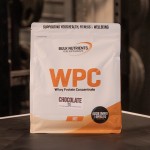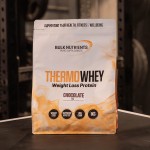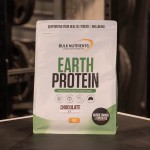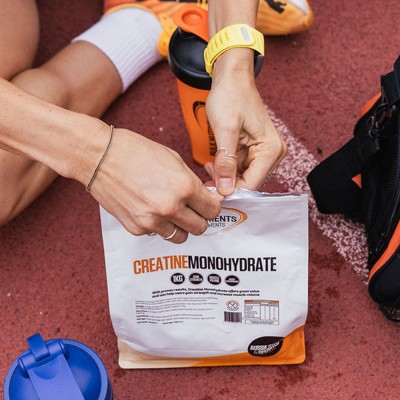The Three Pillars of Health: Your Guide to Goal Setting!

Getting back on track this new year
The start of a new year is often when we reassess, reset and decide on some new goals.
The most important thing is not to be harsh on yourself, be nice. Yes, you may have gained weight and you may have more fat than normal, or you may be less fit, or have slipped into a few poor habits, but that is okay!
Even if you've done nothing at all, I do have some good fitness news for you. We are primed to make progress in the gym again thanks to muscle memory.

1. Diet: recover the muscle gains you may have lost
Bickel (2011) reports from the National Library of Medicine and found that dropping your training volume to 1/9 has shown that muscle mass is maintained on average for 32 weeks. So all is not lost, even if you've not trained for a considerable period of time.
Another part of the research to prevent muscle loss was dependant on how many calories you consumed and how much protein was in your diet.
How many calories are you consuming?
Perhaps you have been in a calorie surplus, which can be simply due to not moving as much or going to the gym, as well as eating a bit more than needed. The good news is that you would have prevented muscle loss if you were eating at maintenance or in a calorie surplus.
To determine what your maintenance calories are for fat loss or muscle gain, head here, How to determine calories for a lean bulk and The guide to kick-starting your summer fat loss diet.

How much protein is in your diet?
Protein, as we know, is the building block of muscle growth however you may be over or under consuming this macronutrient. I found for a long time especially as a youth I was overconsuming this macronutrient and under consuming carbohydrates on the myth that carbs will make you fat. Oh, boy was I wrong. Caspero (2020) recommends that active adults have between 1.2 and 2.0 grams of protein per kilogram of body weight per day, to boost recovery after training and to promote the growth and maintenance of lean muscle mass.
For example, an 80kg male should have at least 160g of protein per day at 2.0grams per kg of bodyweight.
70kg female should have at least 84g of protein per day at 1.2grams per kg of bodyweight.
Both these numbers are generic to both females and males. Females may need more depending on their type of exercise. However, males generally need more protein than females.
But how do I consume that amount of protein every day?
This is where protein supplements are convenient to have. Not everyone has the time to be over the stove cooking extra protein sources late at night to meet your protein targets for the day. There is absolutely no need to get all your protein from meat despite what you might see in the mainstream bodybuilding magazines.
Let’s take a look at the Bulk Nutrients range. Here is a quick snapshot of our protein options:
- Whey Protein Concentrate - More affordable, a good amount of protein slightly higher in fat.
- Whey Protein Isolate - Slightly higher protein content per serving and lower in fat.
- Thermowhey - Fat loss protein with added thermogenic ingredients to enhance your ability to lose body fat.
- Earth Protein - Vegan protein powder made from pea and rice.
- Future Whey - Vegan friendly that is made up of BCAAs (Branched Chain Amino Acids). Cordial consistency and easy to get down if you have a dairy intolerance.
This is only a quick snapshot of our products. For more in-depth descriptions, check out the range at bulknutrients.com.au or use the Shop by Goal tool to find the best product for you.

Introduce fats and carbs for a balanced diet.
Once the protein is in check, your diet must have a range of complex carbohydrates such as;
- Rice
- Oats
- Wholemeal bread
- Wholewheat pasta
- Higher carb vegetables, for example, potatoes, carrots, peas and corn.
Don’t forget to add in some healthy fats;
- Avocadoes
- Nuts
- Olive oil
- Salmon
Just be very mindful of the calorie count on these as without tracking these, they can quickly add up, comprising 9 calories per 1g of fat.

2. Now onto the next pillar of health: Exercise.
This may not apply to everyone; however, this may be your chance to overlook what you are doing to accelerate your results and not spin your wheels yet again for another year. One of the most important factors is progressive overload. In short, progressive overload refers to the process of gradually overloading the body with either volume, intensity, frequency, or time to reach a specific goal.
Volume.
Volume is the number of sets and reps lifted. Not all volume is equal due to weight and intensity and compound moments such as the back squat, which incorporates your hamstrings, quads, glutes, calves and core. However, as a general guide, you need to make sure you are changing up the volume in some way to ensure progressive overload. An easy way is to add an extra set if you can’t increase weight any further without compromising form. Ideally, keep a workout log on your phone or paper, but you can keep track of it in your head; however, that process has plenty of flaws.
Frequency - Try to train each muscle group twice per week.
Frequency is the number of times you train a muscle group per week. “When comparing studies that investigated training muscle groups between 1 to 3 days per week on a volume-equated basis, the current body of evidence indicated that frequencies of training two times per week promote superior hypertrophic outcomes compared to one time.” For example, a push/pull/legs split will achieve hitting body parts multiple times a week, or an upper/lower/rest split will work.
Intensity - “Time under tension".
Intensity can be harder to track, especially if you aren’t tracking the time of rest you are getting between sets. However, intensity includes how you execute the reps within a set. If you are sticking to your volume and can’t progress weights or sets, try adding slower reps or pause reps. This will add that extra workout stimulus to keep progressive overload.

3. Diet and exercise in check what is left?... Sleep!
Suni (2020) from Sleep Foundation writes about guidelines for how much sleep we need. He advises that “healthy adults need between 7 and 9 hours of sleep per night. Sleep powers the mind, restores the body and fortifies virtually every system in the body”. I am certainly guilty of this being a shift worker and working night shifts. He writes on the importance of sleep hygiene which includes your bedroom setting and sleep-related habits. Here are his tips for a better night's sleep;
- Sticking to the same sleep schedule every day, even on weekends.
- Practising a relaxing pre-bed routine to make it easier to fall asleep quickly.
- Choosing the right mattress that is supportive and comfortable.
- Minimising potential disruptions from light and sound.
- Disconnecting from electronic devices like phones or laptops at least half an hour before your bedtime.
The most important tip for me is about switching off electronic devices. We are all guilty of this. your Instagram feed will still be there in the morning. Suni (2020) confirms that scientists have found that light from electronics has the potential to disrupt sleep because it sends alerting signals to the brain. In particular, the blue light from mobile phones and laptops has been shown to delay the release of melatonin.
Sleep quality supplements
If you struggle to find issues with your sleep and can’t find a routine that works, Bulk Nutrients can help with their sleep product ZMA.
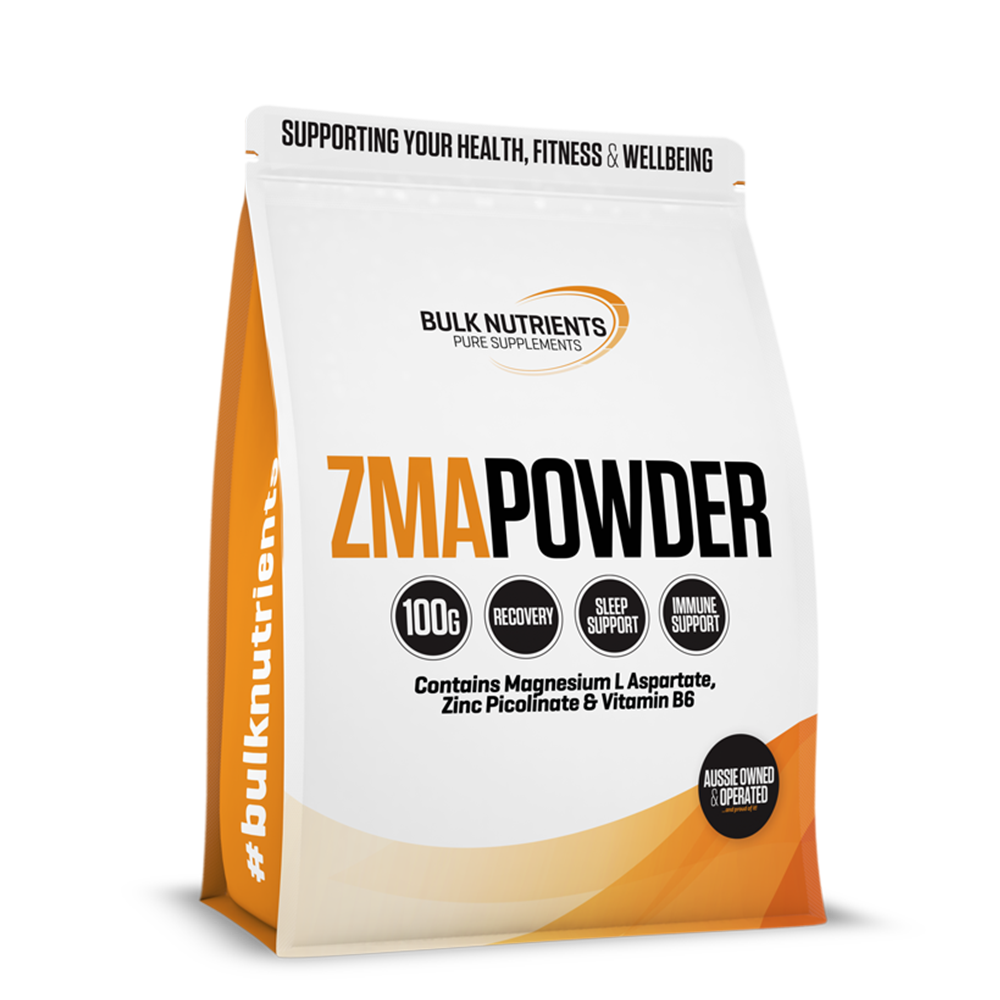
ZMA is a mineral supplement containing Magnesium, L Aspartate, Zinc Picolinate and Vitamin B6. The use and effectiveness of supplementing with ZMA have been widely documented. A study on American Footballers by Lorrie Brilla, PhD found that ZMA had various positive effects on the athletes. A group of 12 competitive NCAA football players who took ZMA nightly during an eight-week training program had their muscle strength and functional power measured and the athletes that supplemented with ZMA nightly over an 8-week period had 2.5 times greater strength gains and doubled the functional power gains compared to the placebo group.
Make the most of your year!
That is a wrap for this article, I hope you all have taken something from this article and it can motivate you to find a better you in the coming year. My two goals for next year are to closely track progressive overload and lose my phone at least 30 minutes before I go to bed.
Happy New Year to everyone and hope everyone has enjoyed their break over these summer holidays!
Ben Disseldorp
References:
- Alexandra Capero (2020) “Protein and the Athlete- How much Do You Need?”. Retrieved on the 7th January 2021 from www.eatright.org.
- Bickel (2011) “Exercise dosing to retain resistance training adaptions in young and older adults”. National Library of Medicine. Retrieved on 7th January 2021 from pubmed.ncbi.nlm.nih.gov.
- Eric Suni (2020) medically reviewed by Dr. Abhinav Singh from Sleep Foundation (2020) “How much Sleep Do We Really Need?”. Retrieved on 7th January 2021 from sleepfoundation.org.
- Brilla, L & Conte, V, Effects of a novel zinc-magnesium formulation on hormones and strength, Journal of Exercise Physiology Online 3(4):26-36 October 2000
- Brilla, L & Conte, V, Effects of Zinc-Magnesium (Zma) Supplementation on Muscle Attributes of Football Players, Medicine & Science in Sports & Exercise 31(5):S123 · May 1999
Related Blogs

Is Too Much Protein Bad for Your Health?
Posted by Dayne Hudson
Estimated reading time: 5 minutes

Alcohol - A good time or your Achilles’ heel?
Posted by Max Cuneo
Estimated reading time: 13 minutes

The Benefits of Quitting Smoking
Posted by Max Cuneo
Estimated reading time: 13 minutes
